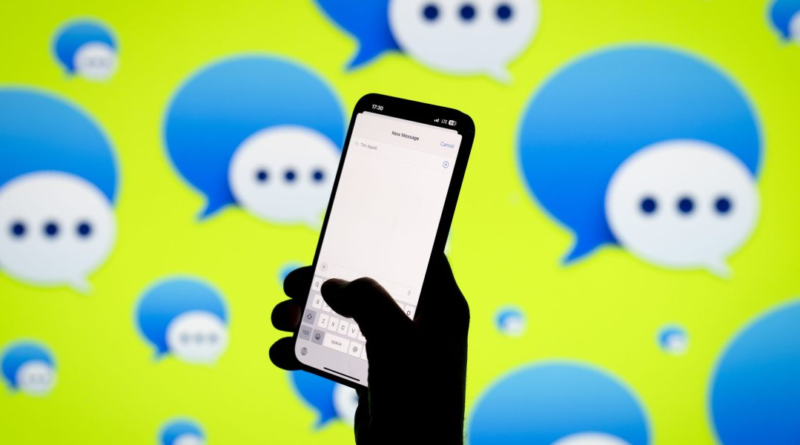Apple folds for a third time to the EU, and it means iPhone users can now get ‘read’ receipts when texting their Android friends
In a move that could help get EU regulators off its back, Apple is making it easier for iPhone and Android users to text one another. And with the change goes some of Apple’s clout.
The iPhone maker in late 2024 will integrate the Rich Communication Services (RCS) messaging standard, a more advanced text delivery system across different brands of phones, 9to5Mac first reported on Thursday. The protocol will support some iMessage features for text chains that include an Android user, including indicators that a message has been read by a recipient and that they are typing, and the ability to send high-quality images and videos.
Apple didn’t respond to questions about specific iMessage features that RCS could adopt. Among the possibilities are support for “liking” or “emphasizing” texts, or sending messages with visual effects, like “invisible ink” and “balloons.”
Previously, texts between iPhone and non-iPhone users sent via SMS (Short Message Service) and MMS (Multimedia Messaging Service), systems created in 1992 and 2002, which have been criticized for being outdated. RCS was created in 2007 as a more secure alternative with more sophisticated features, and it is the standard communication platform between Google and Samsung phones.
“We believe RCS Universal Profile will offer a better interoperability experience when compared to SMS or MMS,” an Apple spokesperson told 9to5Mac. “This will work alongside iMessage, which will continue to be the best and most secure messaging experience for Apple users.”
For more than a decade, messages between iPhones appeared in an azure color for Apple users, while messages with a non-iPhone user appeared lime green. The blue text bubbles have become somewhat of a status symbol among young users, with Androiders excluded from iPhone group texts to keep the blue bubble aesthetic and green texts jokingly considered a red flag among some singles in the dating scene. Apple has accepted the social status associated with its product and the business it drives, blocking the more advanced RCS standard from its devices until now.
It is unclear if the adoption of RCS means the green text bubbles will change to blue—Apple didn’t respond to Fortune’s query about it—but integrating a more advanced messaging protocol for communication with non-iPhones is a major concession by the company. While the announcement doesn’t mean non-iPhone users get access to iMessage, it does mean the walls around Apple’s iMessage empire are coming down. iMessage will remain the primary messaging platform between iPhone users.
Apple’s change didn’t happen in a vacuum. In recent months, the EU has forced Apple to change a number of its practices to improve competition and consumer convenience. New EU rules required all phone companies to offer a common USB-C charging port by the end of 2024, which put a spotlight on Apple and its incompatible 11-year-old Lightning Cable. For the newest iPhone 15, the company replaced its proprietary port with the EU-friendly (and Android-friendly) USB-C. Apple plans on changing its App Store policies to comply with the EU’s new Digital Markets Act (DMA), which could mean offering third-party stores on its devices and cutting into the profit from Apple’s App Store monopoly.
The RCS integration wasn’t required by the EU, but it might be a way to appease regulators and limit future problems. The EU Commission is weighing whether iMessage falls under the DMA’s purview, and a decision that it does would mean Apple might have to improve the interoperability of its devices anyway. The move is also somewhat of a counter-lobbying strategy. Google has lobbied the Commission to regulate iMessage under the DMA. By taking a proactive approach and introducing the RCS standard, Apple weakens Google’s case and may solve the problem the DMA intends to tackle.




